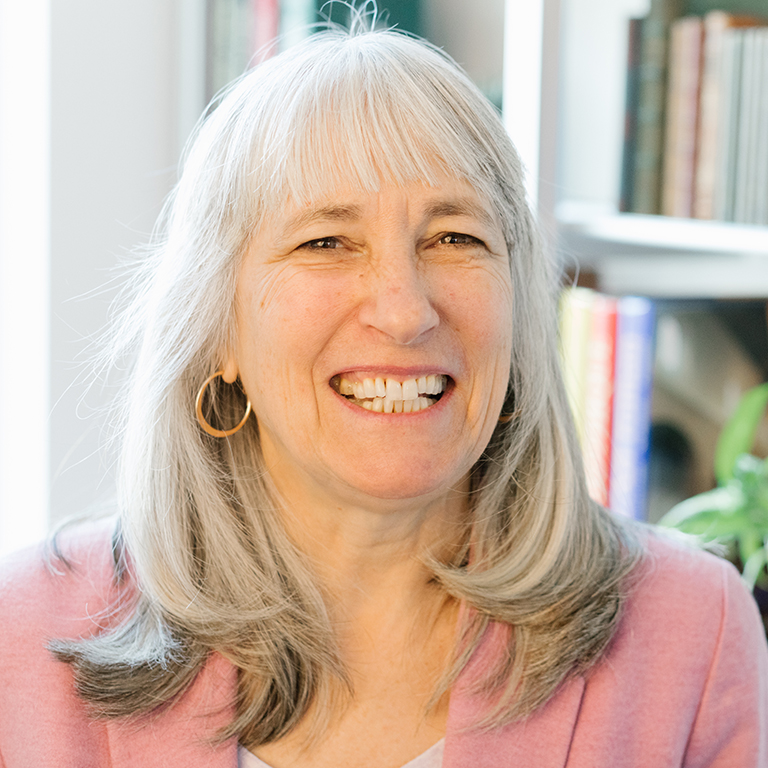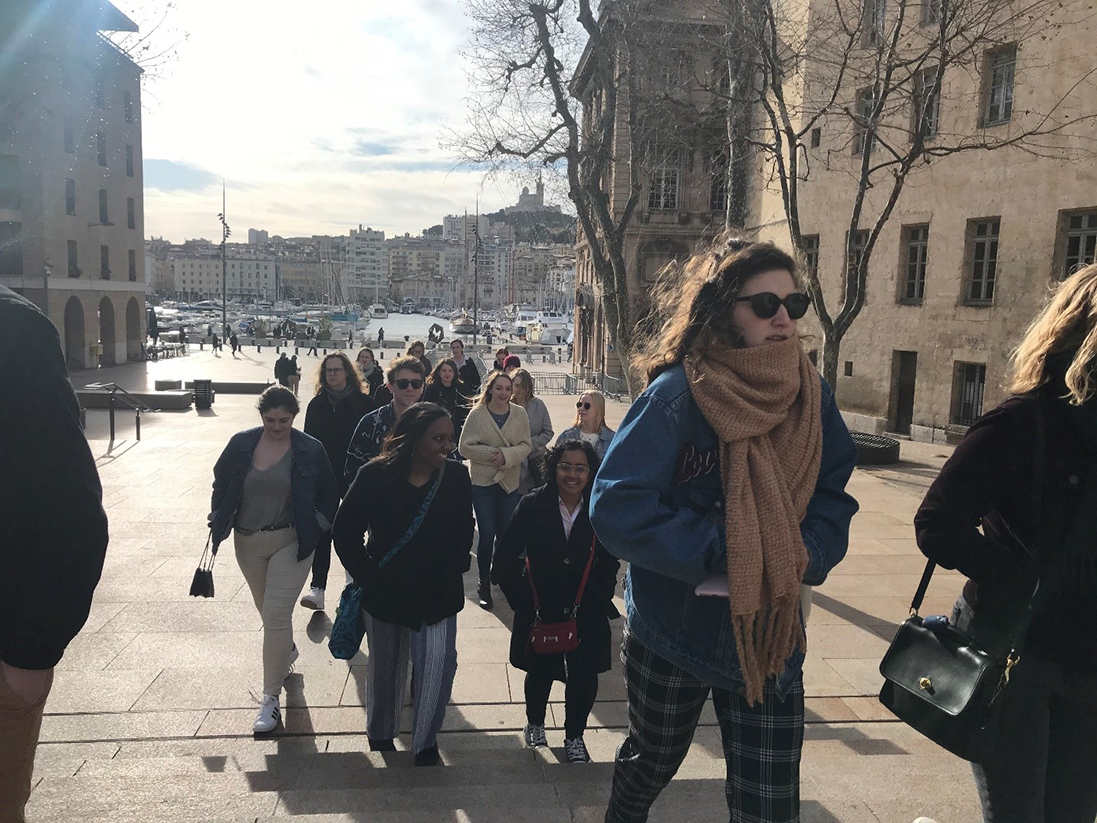Our assistant director, Patricia Reffay, and I had begun discreetly preparing for such a catastrophe, hoping nonetheless–with increasing desperation—that it might be averted; that France might somehow manage to avoid our neighbor Italy’s disastrous virus rates. And when the last week of February brought the traditional French academic break, it still seemed safe for our students to scatter across Europe. But one group of seven in a rented van driven by an IU student –the only one who knew how to drive a stick shift—set off for Switzerland and Germany, with northern Italy as the final destination: precisely where, as the week wore on, the mounting virus count was shutting down eleven villages. Europe was getting nervous; on February 23, a train originating in Italy was stopped and refused entry into Austria. On February 25, the mayor of our students’ final destination, the Italian village of Omegna—not one of those under lockdown, but uneasily close—suspended all public and private gatherings, effective immediately. I sent a plea, marked “high importance,” to the group of seven, begging them to cancel their plan for northern Italy—pointing out that, beyond the danger posed by the disease itself, they risked being stranded by an imposed lockdown if they proceeded. No answer. A second, more desperate plea brought response and relief: they had cancelled their Italian Airbnb, and were heading back to Aix through Switzerland.
Meanwhile, we had been anxiously tracking the rising case count in France. At dinnertime on February 29, there were 73 cases; checking again after dinner, I was stunned to find the count had risen to 100. Evening texts to my assistant director became short, pithy one-liners. As I wrote to her on March 4, “Maybe you’ve seen: 257 cases in France.” She wrote back, “We’re actually at 285, but let’s forget about the virus for the evening.” On March 5: “423 cases tonight.” By March 7, her text read: “I didn’t want to demoralize you [vous plomber], but we’re at 949 cases tonight; it’s worse than I had expected.”
Little did we imagine, at that point, how quickly our study-abroad world was to come crashing down. But just four days later, the World Health Organization proclaimed a global pandemic, our program was abruptly closed, and the US announced that it was shutting its borders to European arrivals, effective as of midnight the next day (Friday the 13th, as it happened). In the confusion of that announcement, it was not immediately clear whether American citizens, as well, were included in the order barring European arrivals from entry into the US. (Our college son in California, texting that night to ask whether we were staying in France, soon followed up with a philosophical conclusion, “Well, anyways, it looks like you’re not allowed back.”)
Our students were flung into chaotic efforts to grab seats home as fast as they could, one spending four hours on hold with an airline. Then, with the announcement that President Macron would be addressing the French people the following Monday (March 16), we assumed, along with the rest of France, that it would be to impose a lockdown, but we didn’t know to what extent--whether, for instance, roads would be shut down, including those to the airport. So any students who weren’t leaving that weekend grabbed hotel reservations at the airport for Monday night to be sure to get on their Tuesday flights.
Throughout, we struggled to help them cope with all the shock and anger of being uprooted even as we pushed them through the details (landlords, electric bills, phone, bank) of closing out their lives as “Aixois” and getting themselves on the first flights home. In the midst of the mayhem, one scene brought a special sting: a student crouched on our office floor, returning her borrowed books to the program’s library shelves. Somehow, that simple gesture carried all the decisiveness of our students’ departures.
We then plunged into picking up the program’s shattered pieces: corresponding with our home universities, local host institutions and professors so as to salvage as much of the semester through distance learning as we could. The venerable French university system was not prepared to move online with virtually no notice. Indeed, four students had to leave our emergency meeting early to take an exam announced only late the night before; the professor, sensing what was coming, wanted to be sure to record at least one grade for his class.
With the cancellation of all IU study-abroad programs for this fall, questions now center on the fate of those planned for spring, 2021; will the virus have abated sufficiently to allow students to return to Aix? Yet beyond the near futures of our program and others lie broader questions about the direction of study abroad. One suggestion having provoked much debate involves a move to online-only options; the claim is made that the “poly-dimensional dynamic” of a fully online study-abroad program allows a student, literally, to pause in the midst of the experience and explore aspects of a world-cultures question across a range of disciplines. Such an “armchair” version of study-abroad recalls the decision of novelist J.-K. Huysmans’s eccentric aesthete, Des Esseintes, who, having planned a trip to London, stops at an English tavern in Paris while waiting to board his train. After a dinner of oxtail soup, haddock and coffee laced with gin, he decides he has no need to go to London — his pub “taste” of English culture suffices. What’s the use of traveling, he asks, “when one can travel so magnificently in a chair?” As he reasons, weren’t the tavern’s odors, atmosphere, inhabitants, and utensils those of London itself?
At the opposite end of such armchair traveling was a student response reported by another study-abroad program: “I learned that things didn’t have to go as they were supposed to.” This spring certainly saw an extreme version of that lesson in action, as the pandemic uprooted our students from their fledgling French lives and sent them home. As of March 11 for our Academic Program in Aix-en-Provence, nothing went as it was supposed to, not in Aix, not anywhere. But isn’t that often true—things not “going as they’re supposed to”-- for life itself, and one of its own great lessons? After all, “c’est la vie”!


 The College of Arts
The College of Arts